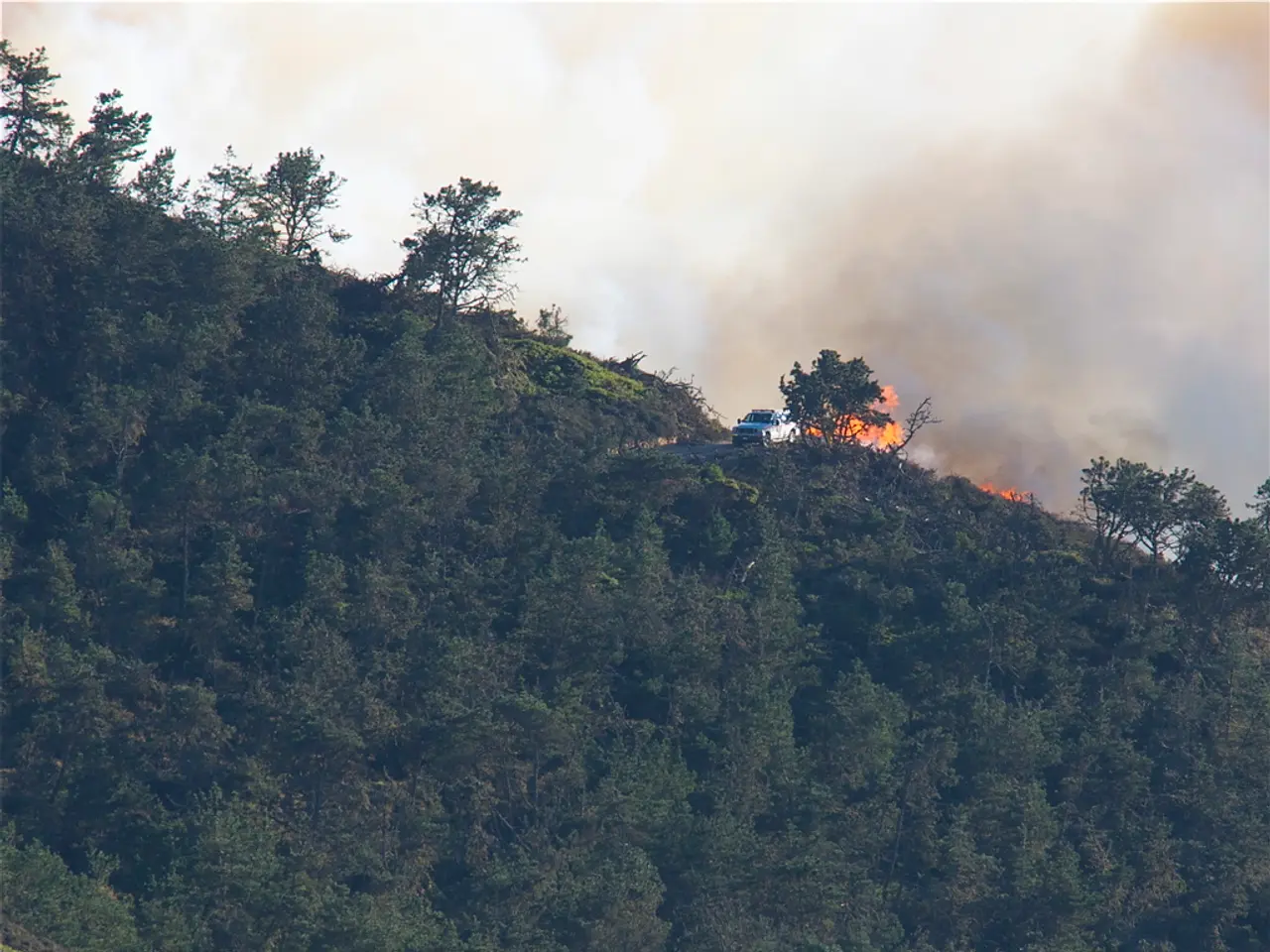Wildfires in Canada generate polluted air, affecting extensive regions in the Midwest.
The Midwestern United States is currently experiencing unhealthy air conditions due to the impact of Canadian wildfire smoke. Air quality alerts are in effect in several states, including Iowa, Minnesota, Wisconsin, Michigan, eastern Nebraska, Indiana, and Illinois[1][2].
The Air Quality Index (AQI) in parts of Minnesota, including Minneapolis, has reached the red or "unhealthy" category, representing poor air quality that can affect everyone but especially vulnerable groups such as people with lung or heart disease, children, older adults, and pregnant women[1]. The Minnesota Pollution Control Agency warned that even healthy individuals might experience symptoms like eye irritation, coughing, or difficulty breathing, while sensitive groups could face more serious risks such as asthma attacks or cardiovascular events[2].
Air quality alerts have been extended through Monday, August 4th, in southeastern Wisconsin and across all counties in Michigan, reflecting ongoing smoke impacts from over 700 active wildfires across Canada, primarily in southern Manitoba north of Minnesota[2]. While some improvement in air quality was noted on Sunday in parts of Minnesota, the smoke is expected to persist across the region through much of the week with possible short breaks[2].
Compared to the severe 2023 wildfire smoke event, air quality degradation this time is less severe but still significant enough to warrant public health warnings and precautions, especially for sensitive groups. The smoke is also moving eastward toward the Great Lakes and Northeast, spreading hazy conditions there into early next week[3].
To minimize the impact of smoke, health officials recommend avoiding burning things that could make the air pollution worse, and keeping windows and doors closed to keep the smoke from getting inside. They advise people with asthma, other lung disease, heart disease, children, and older adults to avoid prolonged exposure to smoke and limit strenuous activities[4].
The city of Minneapolis has experienced some of the worst air pollution in the world since Friday, according to the Switzerland-based air quality monitoring database IQAir[5]. Canadian environmental officials anticipate the smoke to persist into Sunday for some areas[6].
In summary, Midwestern states continue to face unhealthy air conditions due to Canadian wildfire smoke, with official warnings urging at-risk populations to limit outdoor exposure and monitor symptoms. The situation remains dynamic as smoke disperses but new smoke transport is expected throughout the coming days[1][2][3].
- In the Midwestern United States, the rising concern for mental health is evident, as individuals are increasingly anxious about the ongoing unhealthy air conditions caused by Canadian wildfire smoke.
- To promote holistic health-and-wellness, experts are encouraging fitness-and-exercise enthusiasts to adjust their routines amidst the unhealthy air conditions, focusing on indoor exercises and activities that minimize exposure to polluted air.
- As climate change contributes to increasing wildfire incidents across the globe, environmental-science professionals are working tirelessly to find solutions that mitigate wildfire smoke's harmful impact on air quality, mental health, and overall health and wellness.




